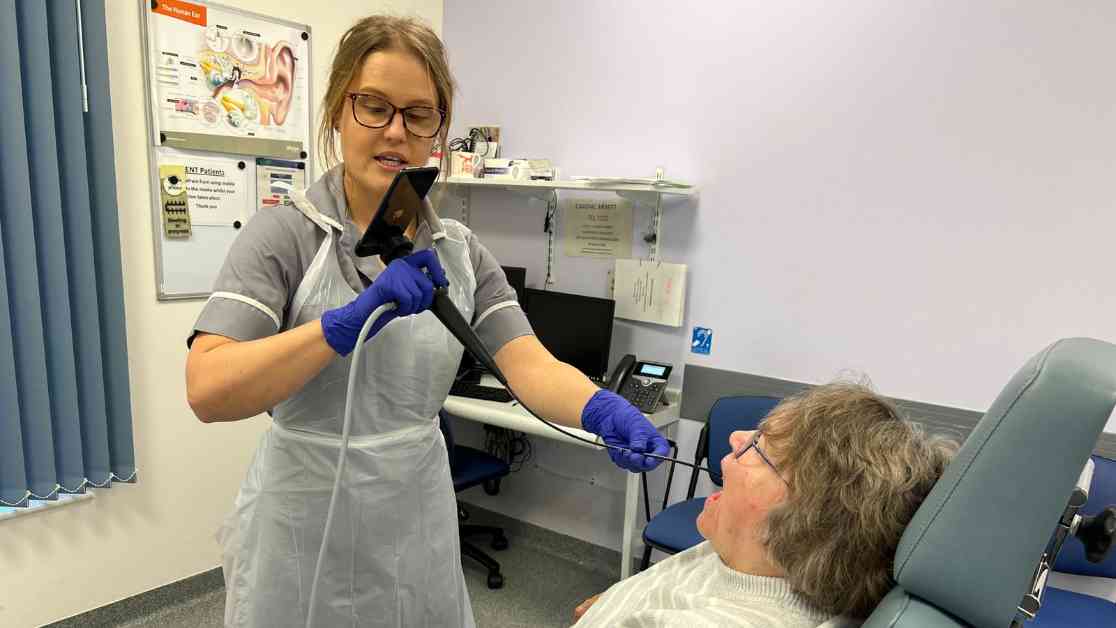The NHS has initiated a trial for a new iPhone adapter that aims to detect throat cancer more efficiently. This innovative device is designed to provide quicker results, allowing thousands of patients to receive a cancer diagnosis within hours rather than days or weeks, ultimately leading to early detection and treatment.
Typically, individuals suspected of having throat cancer undergo an endoscopy, a procedure involving a camera-equipped tube passed through the mouth or nose to examine the body. The new adapter, known as the endoscope-i, can be connected to an Apple smartphone, enabling nurses to capture high-definition endoscopy footage. This footage can then be shared with specialists who can promptly provide feedback to patients, streamlining the diagnostic process.
The initial pilot conducted by the North Midlands University Hospitals NHS Trust successfully reassured over 1,800 low-risk patients that they were cancer-free, with results delivered in just 23 hours. Additionally, the device detected cancer in approximately 1% of those tested, showcasing its effectiveness in identifying the disease. Importantly, no cancers were missed during the trial, highlighting the device’s accuracy and reliability.
Dr. Cally Palmer, the national cancer director at NHS England, emphasized the importance of early cancer detection in improving patient outcomes. By ruling out cancer sooner, patients can alleviate the stress and uncertainty associated with waiting for test results, ultimately providing peace of mind to individuals and their families. The device’s potential to be used in diagnostic centers and community settings nationwide could revolutionize cancer screening, reducing hospital visits, optimizing resource allocation, and minimizing wait times for patients.
According to NHS England, there are approximately 250,000 urgent referrals for suspected head and neck cancer annually, with only 5% of cases resulting in a cancer diagnosis. Testimonials from trial participants like Janet Hennessy and Kyle Jones underscore the device’s significant impact on patient experience and outcomes. Hennessy praised the device for its rapid results, alleviating the anxiety of waiting for weeks for a diagnosis. On the other hand, Jones, diagnosed with cancer through the device, expressed gratitude for the early detection that likely saved his life, emphasizing the critical role of timely intervention in cancer treatment.
In conclusion, the introduction of the iPhone adapter for throat cancer detection represents a major advancement in cancer care. By streamlining the diagnostic process, providing quicker results, and facilitating early detection, this innovative device has the potential to revolutionize cancer screening practices, ultimately improving patient outcomes and survival rates. As the device continues to undergo trials and potentially expands to diagnostic centers nationwide, its impact on cancer care and patient well-being is expected to be profound.




